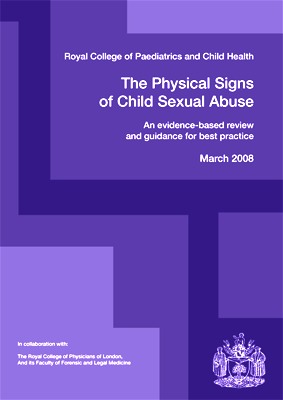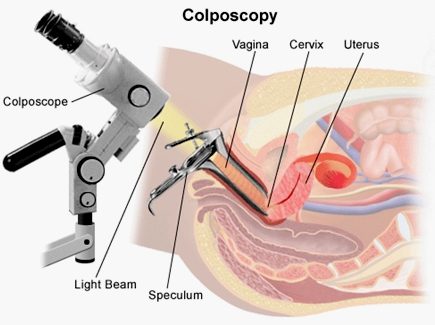|
RAPE
|
|
HOME | CASE STUDIES | LAW | NEWS | POLITICS | RIGHTS | SCANDAL | SITE INDEX | WHISTLEBLOWING |
|
Rape is a crime where the victim is forced into sexual activity, in particular sexual penetration, against his or her will. The word originates from the Latin rapere: to seize or take by force. The Latin term for the act of rape itself is raptus.
Originally, the word rape was akin to rapine, rapture, raptor, and rapacious, and referred to the more general violations, such as looting, destruction, and capture of citizens that are inflicted upon a town or country during war, eg. the Rape of Nanking. Today, some dictionaries still define rape to include any serious and destructive assault against a person or community. This article, however, focuses primarily on sexual assault.
THE ULTIMATE RAPE - Is being convicted for raping a teenager, when the girl was still a virgin (intact). Dr Liebenberg was the expert witness who aided Sussex Police to obtain the conviction of an activist that Wealden District Council desperately wanted to silence. In effect, she lied to a Jury, by not telling them that guidance just about to be released, confirmed that certain marks are naturally occurring. Our Melanie from Eastbourne said words to the effect that she: could think of no other explanation (meaning rape by penetration) than that the man was accused of. It gets worse, when Liebenberg realized on examination that the girl's hymen was tightly closed (a virgin), she then declined to measure from the hymen to the vaginal wall, because she knew that part of the test would reveal conclusively that the girl was intact - or another words, that she had lied about being penetrated. But if the doctor revealed that, the accused could not be charged - and that was the agenda. Because once charged of a sexual offence in the UK, a man is presumed to be guilty - not innocent. The state does not have to prove guilt, any person can make an unsupported allegation and in the absence of evidence to the contrary (which of course a clever pretender can fabricate)
SCREEN MEMORIES - The poor girl may have been an unwilling accomplice, in that she suffered from an attention seeking disorder and was prone to memory suggestion; commonly known as Screen Memories. With the right prompting (coaching) this girl might actually begin to believe that she was raped, based on isolated memory traces, tiny islands of memory that are real. It is not easy for the subject to determine whether such memories are really recollections of actual events or are 'memories' of (for example) a family legend, kept alive and often embellished and distorted by parents or other older family members, and told to a child at a later age. Her school friends might have helped her to construct what she thought was a real memory as she struggled to make sense of earlier childhood memories. For sure the evidence tells us that she was not penetrated as she was claiming. Such spontaneous early memories are termed 'screen memories,' i.e. condensations of a series of memories which have been stored like a series of superimposed photographs." (Max Schur, Freud Living and Dying, p. 117). In his paper on screen memories of 1899, Freud argued that the visual images we bring to mind when recollecting early childhood experience are not pictures of reality: they are distortions or screens that allow us to avoid facing what really happened.
PSYCHOANALYSIS
- Is a set of psychological and psychotherapeutic theories and
techniques, created by Austrian physician Sigmund Freud and stemming partly from the clinical work of Josef Breuer and others.
Over time, psychoanalysis has been revised and developed in different directions. Some of Freud's colleagues and students, such as Alfred Adler and Carl Jung, went on to develop their own ideas independently using the term 'psychoanalysis.'The Neo-Freudians included Erich Fromm, Karen Horney, and Harry Stack Sullivan.
The basic tenets of psychoanalysis include:
FRAUD AND IMMUNITY - The claimant's mother was a serial fraudster. She'd had a previous relationship that failed leading to a property struggle. This woman owned a property other than where she was living and failed to declare that fact, or the capital sum that subsequently came from its sale. No problem, but with that sum on money she could not claim housing benefit or work credits. She was of course claiming both. How then did the police not prosecute her, but instead prosecuted the man when he was collecting evidence of these frauds for an appeal? The only answer we can think of was that she was granted immunity from prosecution in return for her false testimony. She even blurted out something about this when being cross examined. Indicating that she'd been coerced into giving evidence, against her will. It could be then that the police knew about her fraudulent ways and used this knowledge to force her to take the witness stand.
The problem with her testimony, was that she claimed in open court that the man had not lived with her, when he had lived with her for over two years, also contributing money to the running of her house in Hailsham. The neighbours (if they had been asked, including a solicitor and a police man) could have confirmed that the target stayed at her house every night for these two years - hence, the definition living together. The woman claimed that there had been no financial input from the man, and that is demonstrably a lie because of payment stubs where he was paying her credit card bills on a monthly basis. But these facts did not sit well with her claiming housing benefit or working tax credits. There were other frauds that reveal a pattern of abusing state grants, and not declaring income - that it would have been nigh on impossible for the investigating officers not to discover.
DATE RAPE
Date rape can mean all sorts of things and can apply to varying situations. There is a lot of information available on the situations that date rape occur in as well as the drugs commonly used.
Although UC Davis is considered a "safe" campus, even safe campuses contain dangerous elements. Davis experiences an average of 43 forcible sexual assualts (rapes) each year. By law, the University is required to publish its sexual assault statistics in an annual Clery Report. Below is a graph depicting the raw forcible sexual assault statistics for Davis from 2001 to 2003 (the 2004 stats come out at the end of 05, this year's stats will come out next year etc.) This goes to show that our sleepy little town is not without tragedy.
What you can do
History
The concept of rape, both as an abduction and in the sexual sense, makes its first appearance in early religious texts. In Greek mythology, for example, the rape of women, as exemplified by the rape of Europa, and male rape, found in the myth of Laius and Chrysippus, were mentioned. Different values were ascribed to the two actions. The rape of Europa by Zeus is represented as an abduction followed by consensual lovemaking, similar perhaps to the rape of Ganymede by Zeus, and went unpunished. The rape of Chrysippus by Laius, however, is represented in darker terms, and was known in antiquity as "the crime of Laius", a term which came to be applied to all male rape. It was seen as an example of hubris in the original sense of the word, i.e. violent outrage, and its punishment was so severe that it destroyed not only Laius himself, but also his son, Oedipus.
In antiquity and until the late Middle Ages, rape was seen in most cultures less as a crime against a particular girl or woman than against the male figure she "belonged" to. Thus, the penalty for rape was often a fine, payable to the father or the husband whose "goods" were "damaged." That position was later replaced in many cultures by the view that the woman, as well as her lord, should share the fine equally.
Rape, in the course of warfare, also dates back to antiquity, ancient enough to have been mentioned in The Bible. The Greek, Persian and Roman troops would routinely rape women and boys in the conquered towns. Rape, as an adjunct to warfare, was prohibited by the military codices of Richard II and Henry V (1385 and 1419 respectively). These laws formed the basis for convicting and executing rapists during the Hundred Years War (1337-1453).
Since the 1970's many changes have occurred in the perception of sexual assault due in large part to the feminist movement and it's public characterization of rape as a crime of power but not of sex. In some countries the feminist women's liberation movement of the 1970's created the first rape crisis centers. This movement was led by the National Organization for Women (NOW) [1]. One of the first two rape crisis centers, the D.C. Rape Crisis Center [2], opened in 1972. It was created to promote sensitivity and understanding of rape and its effects on the victim.
Marital rape first became a crime in the United States in the state of South Dakota in 1975. It was not considered a crime prior to that year because, historically, a woman was considered to be the property of either a father or husband. A husband could not steal his own property. A related and archaic view according to religious factions was that the woman gave permanent consent when she married the man. In the 1980s, date or acquaintance rape first gained acknowledgment. On July 5, 1993, marital rape became a crime in all 50 states, under at least one section of the sexual offense codes. The Rape and Incest National Network (RAINN) [3] was founded in 1994 by a panel of people including Scott Berkowitz and the musician Tori Amos. In the United States, RAINN operates a 24 hour hotline that victims can use to get counseling.
On September 2, 1998 the United Nations International Criminal Tribunal for Rwanda made sexual violence a war crime. Current topics being debated are the peripheralized victims of rape — male rape victims of both male and female rapists, female-female rape and parental-rape incest victims, LGBT domestic violence and rape victims, marital rape victims and child sexual abuse victims. Other emerging issues are the concept of victim blame and its causes, female sexual aggression, new theories of rape and gender, date rape drugs and their effects as well as the psychological effects of rape trauma syndrome. Non-sexual usage of term
In its original sense, dating back to antiquity, "to rape a person" meant to capture the person for the purpose of enslavement, and was common in ancient warfare. In this context, the willingness of the victim is irrelevant to the categorization of the act as "rape". The "Rape of the Sabine Women" was a "rape" in this context. In Alexander Pope's The Rape of the Lock, the word "rape" is used hyperbolically in a similar context, exaggerating a trivial violation against a person.
Though the sexual connotation is today dominant, the word "rape" is still sometimes used in a non-sexual context. For example, environmental destruction is sometimes described as "raping the earth", and the Rape of Nanking describes a violation both against a town, as well as the people. In "the rape of the Silmarils" in J. R. Tolkien's "The Silmarillion", the word "rape" is used with its old meaning of "seizing and taking away".
Sometimes, the word rape is used to dysphemistically describe forms of non-sexual unwelcome conduct ("My team got raped on the field yesterday."). It is argued by some that this usage is demeaning or disempowering to the victims and survivors of real sexual rape, because it ends up by weakening the force and horror of the word. Such metaphorical and hyperbolic usages are common with other words ("It was absolute torture" to mean ordinary embarrassment; or "I'm starving" to mean ordinary hunger), but survivors of rape and their supporters may find this type of usage deeply offensive, since it normalizes the term "rape" to cover mundane events.
LawCommon law
In the common law of the United Kingdom, Australia and the United States, "rape" traditionally describes the act of a man who forces a woman to have sexual intercourse with him. Until the late 20th Century, forced sex by a husband against his wife was not considered "rape", since a woman (for certain purposes) was not considered a separate legal person with the right of refusal, or sometimes was deemed to have given advanced consent to a life-long sexual relationship through the wedding vows. However, most Western countries have now legislated against this exception. They now include spousal rape (vaginal intercourse), and acts of sexual violence, such as forced anal intercourse which were traditionally barred under sodomy laws, in their definitions of "rape". The term "rape" is sometimes considered "loaded", and many jurisdictions recognize, in its stead, broader categories of sexual assault or sexual battery.
U.S. LAW
In the United States, there is no national rape law; instead each state drafts its own laws to deal with sexual aggression. More than half the states use narrowly defined, traditional laws that focus on the institutional, gender-specific (male perpetrator/female victim), and sexual nature of the crime. The remaining minority of states use liberalized laws that place greater emphasis on the individual, gender-neutral, and violent nature of sexual coercion.
However, even with all the advances that have taken place, current laws in approximately 12 states still have not acknowledged female-perpetrated sexual coercion as a potential variation of sexual aggression. Thus there is no single, universal, gender-neutral legal classification about what constitutes rape in the United States in 2006.
THE ULTIMATE RAPE - This is a picture of a vagina where the hymen is open. This woman could not be described as a virgin. After penetration, a girl's hymen opens. Before penetration, a girl's hymen is tightly closed. You can measure this with a colposcope. Melanie Liebenberg saw that the claimant's hymen with tightly closed. She then tried to tease the hymen open to effect the look of penetration, but even with labial traction, the girls hymen remained tightly closed. You would need to be completely incompetent not to the put any girl claiming rape, into the correct position to measure from the vaginal wall to the hymen. Melanie Leibenberg was not incompetent, she was deliberately concealing the facts from the Court/Jury. She got away with it, because the Judge, Cedric Joseph was helping the prosecution wherever he could, to point of committing perjury, in wrongfully instructing the Jury that a diary with important dates in it, belonged to the accused, when in fact, it belonged to the claimant's mother. This woman had hidden her work diary in her loft to prevent Sussex Police finding it. She could not take the chance that an honest officer would not realize that the dates in this diary did not corroborate her daughter's story, but rather confirmed the defendant's assertions that he had no had the opportunities for contact in private, that the girl was claiming.
In reality, the story that was presented to the Court in Worthing, Sussex, in February of 2008 had been changed several times before the girl had been recorded - where the law says a claimant must be interviewed immediately to avoid story changes. The CPS gave this girl and her family two weeks to concoct a story. Even in the recording, the girl had to be reminded to "tell the truth." She did not know what the truth was. It had of course been drummed into her that she had been penetrated at the defendant's home when they were alone together. Why? Because this was plausible for a jury.
When her mother realized that her work diary did not show this, she hid it in her loft. The police did not search her loft. The existence of the diary only came to light during the trial, when she was caught out lying several times and thought she'd obliterated the prosecution case, so, suddenly introduced her diary. The defence were not given the time to forensically examine the diary and only blurred monochrome copies of some pages were provided to the defence. Cedric Joseph did not stop the trial to adjourn to give the defence time to check dated and times - and then, to cloud any possibility of a Juror checking the dates against a calendar for themselves, told them that it was the defendant's diary. The jury could not possibly have had time to check the dates in the diary, because they did not deliberate for long enough, but returned a verdict in very short order. The ruse by Cedric Joseph and the CPS as partners in organised crime had worked.
ENGLISH LAW - SEXUAL OFFENCES ACT 2003
Under the Sexual Offences Act 2003, which came into force on 1st May 2004, rape in England and Wales was redefined from non-consensual vaginal or anal intercourse, and is now defined as non-consensual penis penetration of the vagina, anus or mouth of another person. The changes also made rape punishable with a maximum sentence of life imprisonment.
ROLE REVERSAL - But more importantly, and a violation of Article 6, the burden of proof shifted from the Prosecution to a Defendant to prove his or her innocence.
Article 6 requires that an accused is to be deemed Innocent Until Proven Guilty. Under this peculiarly English bastardization of justice, any person accused of a sexual crime is deemed to be Guilty - and has to prove their Innocence.
THE HOLY GRAIL - Although a woman who forces a man to have sex cannot be prosecuted for rape under English law, if she helps a man commit a rape she can be prosecuted for the crime. A woman can also be prosecuted for causing a man to engage in sexual activity without his consent, a crime which also carries a maximum life sentence if it involves penetration of the mouth, anus or vagina. The statute also includes a new sexual crime, called "assault by penetration", which also has the same punishment as rape, and is committed when someone sexually penetrates the anus or vagina with a part of his or her body, or with an object, without that person's consent.
|
|
CONTACT OUR WEBMASTER IF YOU CAN HELP CORRECT INJUSTICE
|



